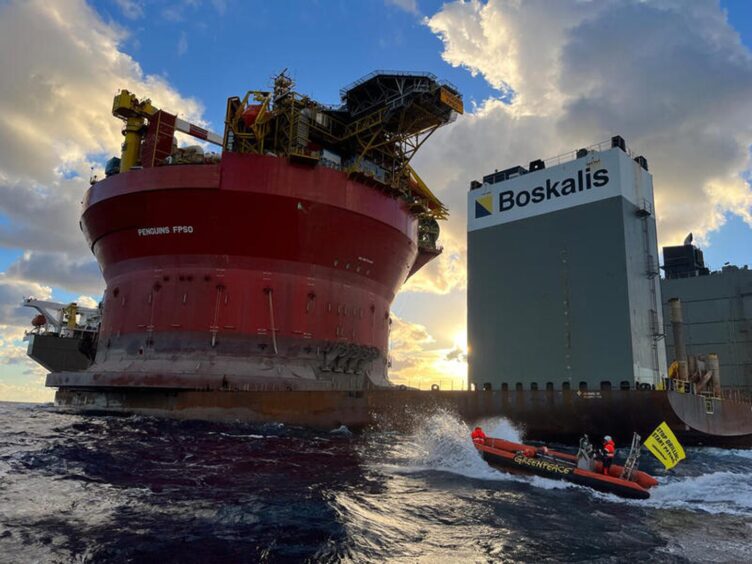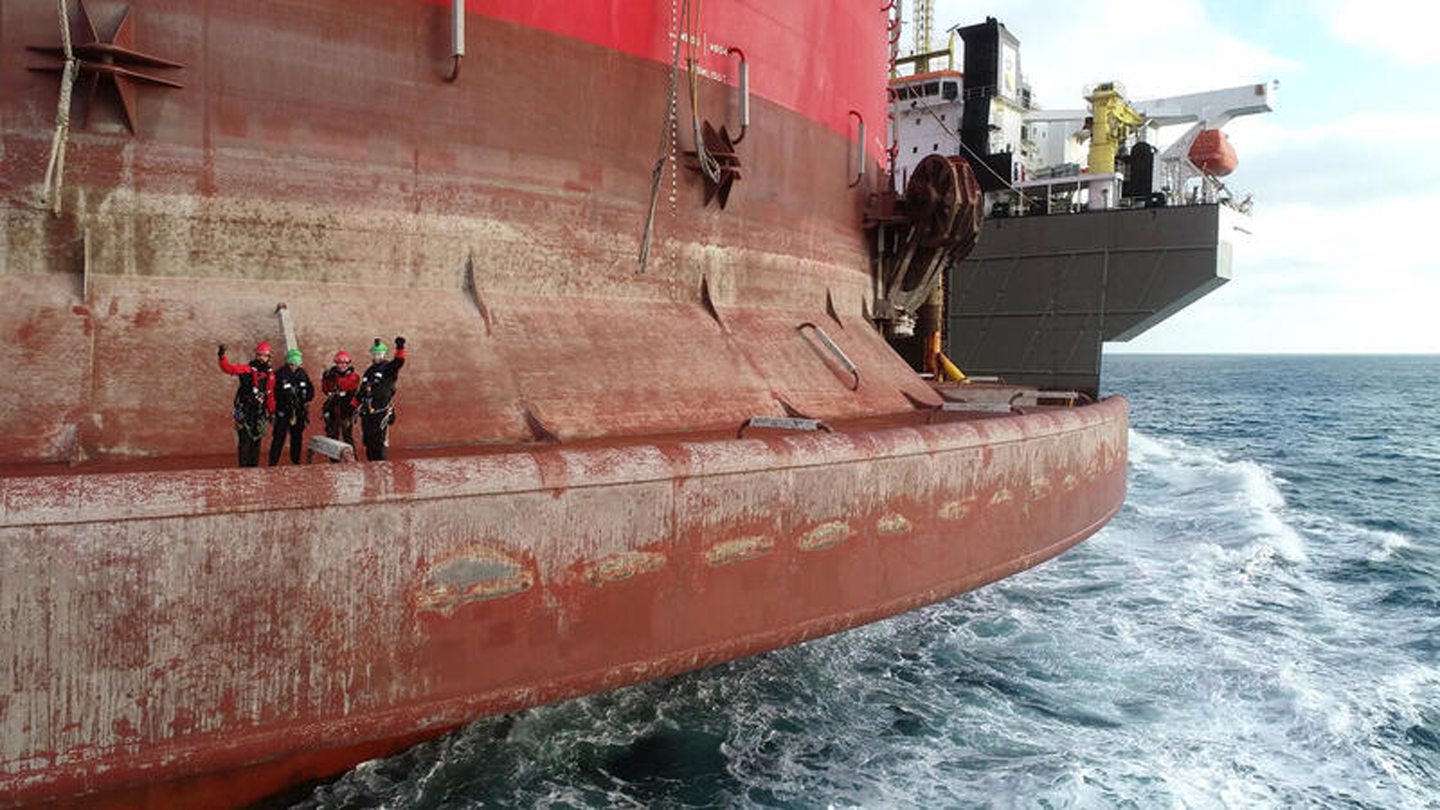
Shell and Greenpeace UK have agreed to settle a multimillion-dollar lawsuit brought by the oil major in response to activists boarding a vessel as part of a protest in 2023.
Greenpeace activists boarded Shell’s Penguins FPSO in January 2023 off the coast of the Canary Islands while it was in transit to the North Sea and occupied it for 13 days.
The Penguins FPSO later reached Norway where the protestors disembarked, and the vessel finally reached its namesake field in UK waters in June this year.
Shell legal action
In response to the protest, Shell threatened legal action in November last year, claiming it and its contractor Fluor suffered a total of $8.6 million (£6.74m) in damages.
At the time, the oil major said it would settle for $1.4m if Greenpeace agreed to never attempt to board, damage, interfere with or obstruct “any other Shell equipment, installation, asset or vessel” at sea or in port going forward.
As part of the settlement, Greenpeace has now agreed to pay £300,000 to the Royal National Lifeboat Institution and avoid protesting at the Penguins site for 10 years.
The campaign group also agreed to avoid disrupting or travelling within 500 metres of Shell’s Gannet, Nelson and Shearwater fields in the northern North Sea for five years.
Shell will not receive any payment as part of the settlement and said the deal recognises its view “this kind of stunt at sea is a serious risk to safety and life”.
“Shell is pleased that the dispute has been settled and that a payment in lieu of the costs it incurred can benefit a charity working on safety at sea,” the company said in a statement.
“For Shell, the right to protest is fundamental and has never been at issue.”
Greenpeace criticises Shell lawsuit
Meanwhile, Greenpeace will accept no liability over the Penguins protest and vowed to continue its broader campaign against Shell’s operations in the North Sea.
The group raised more than £1m from supporters earlier this year in response to the Penguins lawsuit, and is also taking legal action against Shell’s Jackdaw project.
Greenpeace claimed Shell initiated the “abusive” lawsuit to “silence criticism”, in what is known as a SLAPP (strategic lawsuit against public participation).
Greenpeace UK co-executive director Areeba Hamid said the public backlash against Shell “made it back down and settle out of court”.
“This settlement shows that people power works,” Hamid said.
“Thousands of ordinary people across the country backed our fight against Shell and their support means we stay independent and can keep holding Big Oil to account.
“We’ve ensured not a penny of our supporters’ money will go to Shell and all funds raised will be used to continue campaigning against the fossil fuel industry and other big polluters.”
Hamid said while the legal battle over the Penguins protest is over, Greenpeace “won’t stop campaigning until the fossil fuel industry stops drilling”.
Shell and Greenpeace legal battles
The Penguins settlement is the latest in a run of legal disputes involving Shell and Greenpeace.
In 2019, Shell won a court order preventing environmentalists from going within 500 metres of its unmanned North Sea installations after protests at the Brent oilfield.
Meanwhile, Greenpeace is taking legal action against the UK government over its approval of the Jackdaw project, a Shell gas development off Aberdeen.
Alongside fellow campaign group Uplift, Greenpeace is also challenging the approval of Equinor and Ithaca Energy’s Rosebank development.
Rosebank remains the largest untapped oil field in the UK continental shelf.
A recent Supreme Court decision has boosted the Jackdaw and Rosebank challenges, and the decision in the case could have implications for future drilling in the North Sea.
Recommended for you


 © Supplied by Greenpeace
© Supplied by Greenpeace